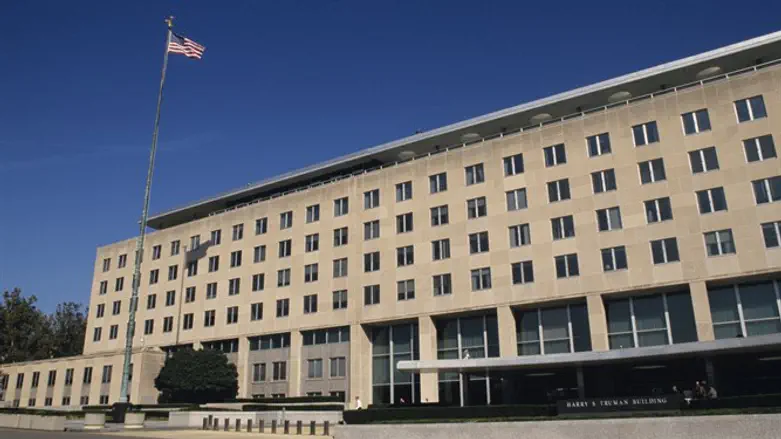
State Department spokeswoman Heather Nauert on Tuesday explained Washington’s decision last week to cut the aid it provides to the Palestinian Authority (PA), saying it was determined that the aid did not provide value to the U.S. taxpayer.
On Friday, the State Department announced it would cut $200 million in bilateral assistance to the PA and would redirect the funds to "high-priority projects elsewhere."
Asked about the cut during her daily press briefing, Nauert said, “Earlier this year, and you all recall this – I know we received a lot of questions about this issue – the President directed an overall review of U.S. assistance to the Palestinian Authority in the West Bank and also in Gaza to ensure that U.S. taxpayer dollars were being spent in accordance with U.S. national interests and then also providing value to the U.S. taxpayer.”
“The decision was then made, and we sent out a statement to this effect, that that money at this time is not in the best interests of the U.S. national interest and also at this time does not provide value to the U.S. taxpayer,” she explained.
“When we talk about the issue of Gaza, we have long said Gaza is the primary entity – excuse me, the Palestinian Authority, the Palestinians and Hamas – the primary reason why the security situation and the situation in Gaza is so terrible, why electricity has become an issue, why clean water has become an issue, all of those things. And Hamas needs to take care of its people. It has refused to do so. Instead, it has spent money on other types of projects, and you know exactly what I’m talking about,” added Nauert.
Indeed, the White House announced earlier this year that it had decided to re-examine the aid provided by the United States to the PA, in light of the ongoing disconnect between the sides since the decision to relocate the U.S. embassy to Jerusalem and recognize it as the capital of Israel.
PA officials reacted angrily to Washington’s aid cut. Palestine Liberation Organization (PLO) Executive Committee Member Hanan Ashrawi described the move as “cheap blackmail” and accused Washington of “bullying and punishing a people under occupation.”
